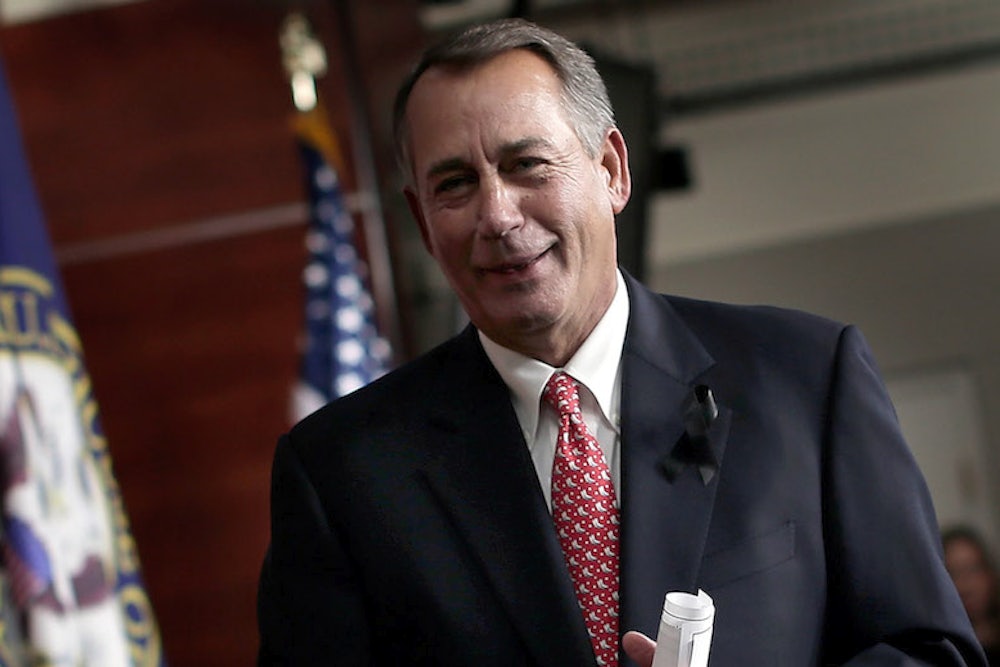The House of Representatives will end its legislative session this week having recorded at least 234 votes against the environment in two years. According to a December 1 count by the minority staff on the Energy and Commerce committee, the House floor held 551 anti-environment votes over the four years since Republicans took control—including votes on bills and amendments that weakened Environmental Protection Agency regulations, opened lands to coal and oil, made changes to the Clean Air and Clean Water Acts, approved the Keystone XL pipeline, and more. The report also includes times Republicans rejected pro-climate and environment amendments from Democrats.
The EPA was the major target for the 113th Congress, with 145 votes to restrict EPA rulemaking and funding (note: there is double-counting in categories). There was a flurry of legislation surrounding the EPA proposal to limit carbon pollution from existing power plants. Several of the House's votes blocked funding for international action on climate change, specifically by defunding the IPCC, a scientific panel that compiles the best research on climate change and helps to inform the decisions of policymakers.

Since 2010, Democratic control of the Senate meant much of the GOP's agenda had little chance of becoming law. That will change in January, and this report serves as one of the best previews of what the next Congress will plan for the environment. Both House Speaker John Boehner and incoming Senate Majority Leader Mitch McConnell have promised to renew legislation approving the Keystone pipiline, rolling back the EPA's cap on carbon pollution from power plants, the ozone rule, and others. Senate filibusters and President Barack Obama's veto pen still stand in the way, but Republicans plan on using must-pass appropriations bills to raise the stakes of these negotiations.
The full count of this Congress' anti-environmental votes will almost certainly be higher once they vote on a $1 trillion appropriations bill to keep the government open past Thursday. The legislation includes a number of riders that restrict the Environmental Protection Authority's ability to regulate. It also cuts agency funding by $8.1 billion, bringing its funding down 21 percent since 2010. All this makes enforcement and rulemaking more difficult, by reducing EPA staff to its lowest level since 1989.
